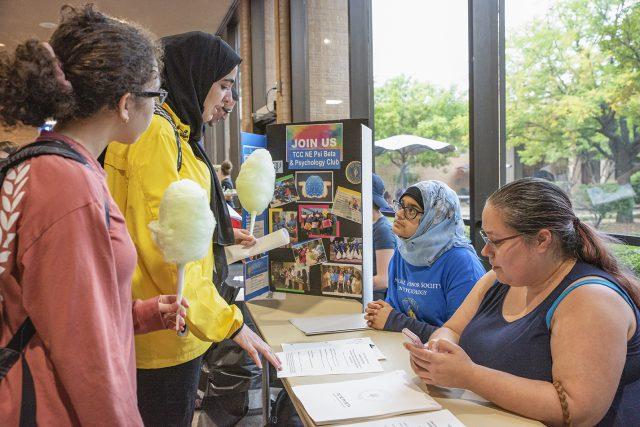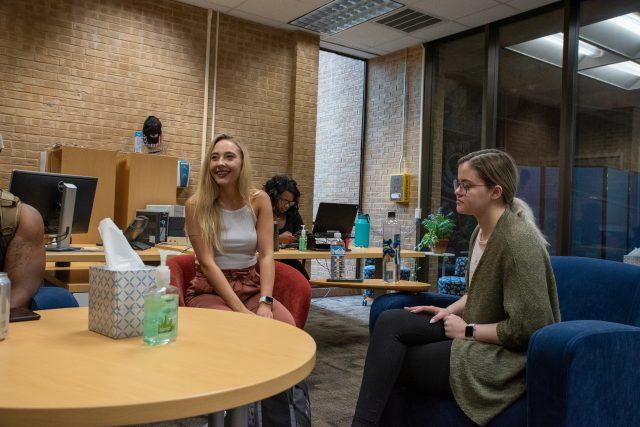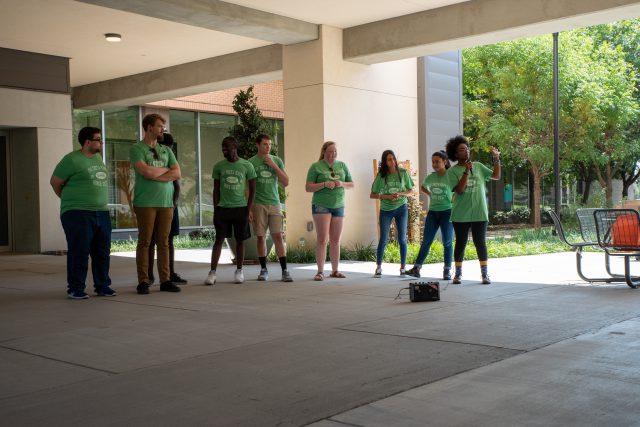| September, 11, 2019 | Jessica Strange | reporter |
|---|
A physical location for student veterans services now exists on NE Campus.
Smartphones ding. Watches buzz. The glow of laptops tempt checking of email and social media browsing. Modern-day classrooms are full of digital distractions that contribute to lower academic performance, but students can take steps to reduce the urge to scroll during class.
A 2018 study published in a technology journal, “Computers & Education,” found that for every 100 minutes students spend on their phones per day, grades dropped an average of 6.3 points. For those who used their phone during class, the effect almost doubled.
Some professors have policies to help prevent distractions. NE government professor Larry Davis has taught at TCC for 50 years. Even though he can’t pinpoint an exact time when devices appeared in class, he started enforcing a cell phone policy, restricting usage to a three minute break in the middle of his lecture, two years ago.
“We do 45 minutes and then a bell goes off and I stop mid-sentence,” he said. “It indicates that this is really a break. When those three minutes are up then I continue the conversation.”
THOSE WHO DO THE WORK DO THE LEARNING.
Larry Davis
NE government professor
“As far as getting students to focus, most of the time it’s worked out very well,” he said. “The whole purpose was for my students to, let me put it this way, pretend to focus on something other than what’s on their phone.”Davis can’t say if his policy has improved his students’ academic performance, but he considers the break effective.
But phones aren’t the only culprit. Laptops, tablets and even watches can draw students’ attention away from class. NE student Mike Flores says he isn’t distracted by his phone often, but sometimes ends up looking at non-class related content on his laptop.
“Something in the professor’s lecture might make me question something,” Flores said. “Then looking at that answer leads to another question and down that rabbit hole until I am looking at something that doesn’t even have to do with the class.”
He also finds it difficult when other classmates scroll. This form of second-hand distraction can affect not only the offending student, but the entire class around them.
“I see someone using a device during a lecture, and not using it for school-related purposes, as a sign of disrespect,” he said.
Not all instructors enforce device policies, so ultimately it’s the students’ responsibility to focus in class. Productivity apps can help set specific times for device usage if self-monitoring is difficult.
Pocket Points is an app that tracks the amount of time students are off their phone and rewards them with points. Users can cash in points for discounts at retailers like Chick-fil-A, Amazon and Barnes & Noble.
Davis says he is working towards making students more responsible for their own academic success. As a reminder to himself and his students, he signs every email with a quote written in big, red capital letters: “THOSE WHO DO THE WORK DO THE LEARNING.”












































